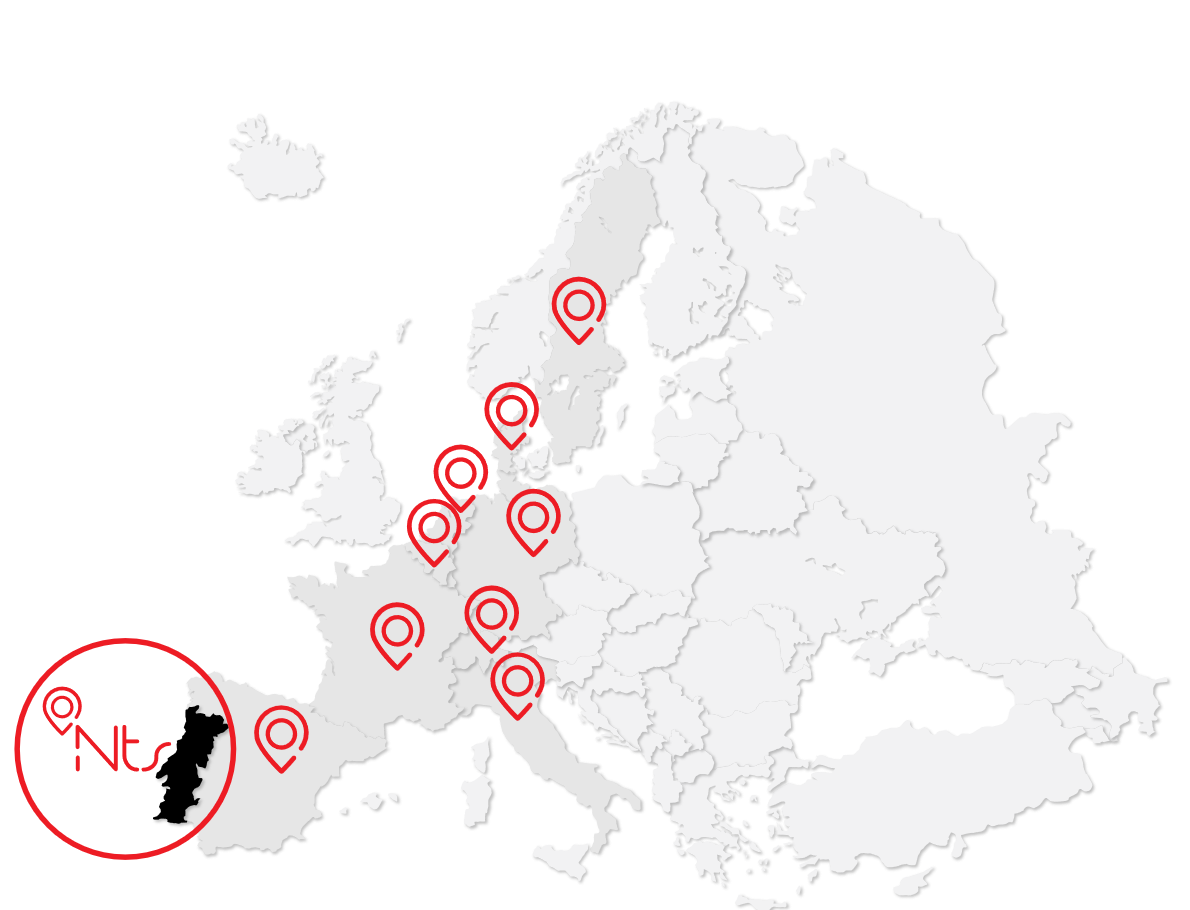




De Nearshore Technology Service (NTS) biedt drie services aan, die aangepast kunnen worden aan uw bedrijfsstructuur.

Als een Europese consultancy groep, biedt agap2 nearshoring services aan, gelegen in het land waar het allemaal begon: Portugal. Wilt u weten waarom Portugal een van de beste Europese landen is voor nearshoring? Scroll dan naar beneden.


Het team wordt aangestuurd vanuit uw hoofdkantoor

Het team wordt lokaal aangestuurd door u
Wij nemen de volledige verantwoordelijkheid voor het project management
We bieden drie service modellen aan om een flexibele maar simpele benadering toe te kunnen passen, zodat we de juiste match kunnen vinden met uw bedrijfsstructuur.





Abílio Duarte, Nearshore Unit Manager of agap2, is the author of an interesting article on Portugal's potential in developing nearshore technology. Originally written for Dinheiro Vivo.
Portugal's advantages in the global IT market
With the advent of globalization and high levels of competition, many organizations have experienced considerable difficulties in developing and maintaining the range of knowledge and requirements they need to compete effectively. The emergence of multinationals on different continents has created a competitive environment that requires the globalization, or at least the "semiglobalization" of corporate strategy. In addition, as information and communication technologies (ICTs) evolve, companies do not have to be large multinationals to compete globally.
Expand as?
Global expansion, however, poses serious barriers in its early period. Consider the obstacles we encounter in the management and domestic operations within an ICT Department, now imagine these same difficulties and transplant them across nations and cultures. Next, we still have to add external variables such as economic regulations, political turmoil and lack of technological infrastructure. Against this background, global expansion seems virtually impossible to implement.
But it isn't - and the biggest evidence is that companies are internationalizing their business on a daily basis. The current economic model is global, based on communication, cooperation and transnational transactions. A company's business must inevitably participate in the globalization process so that it can exploit the foreign markets and resources that will be essential for its survival.
To make a business global, we must understand the evolution of economic and technological models in globalization: pros and cons, benefits and barriers. Know which countries are the ICT hotspots of today and tomorrow. We must also find out how to effectively implement international operations and manage a global team.
Not all companies seek global expansion through a single form or model. Some companies are gradually moving toward a global model starting with small steps such as maintaining a mobile application, recruiting overseas employees or outsourcing development projects abroad such as outsourcing, offshoring, nearshoring and onshoring.
Portugal as a Nearshore Competence Center
Taking stock of the advantages and disadvantages of our country as a Nearshore destination, the conclusion is that they are much more first. From the time zone, the travel time to other central European locations, the culture of welcome, the safety, the weather, all add up when compared to competing countries. Regarding ICT, in addition to the quality level of infrastructures and communications and the encouragement of innovation, research and development, we also have the quality of our Higher Education reflecting the qualification of human resources.
Ultimately, it is the people who make the difference in companies, whether it be technical, language skills, adaptability to other cultures, flexibility and response time, the quality level is quite high and with very competitive values
Global competitiveness, a challenge to face and win
Competitiveness, which is higher compared to countries of origin, but with fewer resources and higher prices than direct competition (Poland, Ukraine, Bulgaria and the Czech Republic) is a reality where It makes no sense from a future perspective to be betting on low-cost strategies like in these countries. We must focus on plans that allow us to be differentiators in the presentation of cutting-edge technology solutions.
Only in this way will we be able to attract companies and, more importantly, to retain the existing talent, knowing that the limitation with regard to the supply and demand of qualified resources has been increasing. We run the risk of not being able to respond to the investment made in order to promote the potential of our professionals to clients. It is up to Portugal to continue to modernize and thus present even more conditions to gain the confidence of Foreign Investment. Simplifying administrative bureaucracy and reshaping the tax burden is crucial while continuing to focus heavily on information technology and defining a strategy for a common effort between the state, universities, clients and centers of competence that provide nearshore services. In this way we will be even more attractive in this global age. Abílio Duarte, Nearshore Unit Manager agap2.

 Diensten
Diensten